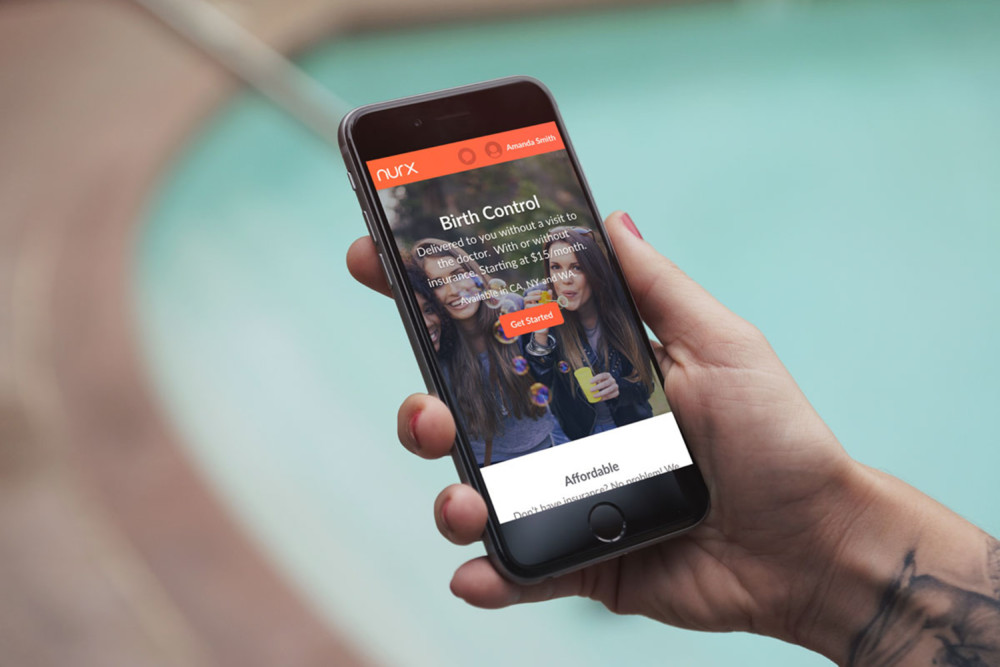By Kelly Ragan
Greeley Tribune, Colo.
WWR Article Summary (tl;dr) With Nurx, users download the app and fill out a survey, which is sent to remote doctors who are licensed to practice. Users can select the brand of birth control they want if they’ve used it before or if they’ve never used birth control before, doctors can make recommendations.
Greeley Tribune, Colo.
Nurx, a new start up and app, joined the ranks of Maven and Lemonaid in providing access to birth control via smart phone. Nurx launched in Colorado in late January.
The app gives women and girls of all ages another option to get birth control without going to a doctors’ appointment or telling their parents.
All women, even girls, can already access contraception without parents’ permission in Colorado. They can go to a doctor for a prescription, or they can go directly to a pharmacy. Now they can use apps.
With Nurx, users download the app, whether from a store or from the website, and fill out a survey, which is sent to remote doctors who are licensed to practice in Colorado, said Maryam Fikri, spokeswoman for the company.
Users can select the brand of birth control they want if they’ve used it before, Fikri said. If they’ve never used birth control before, doctors can make recommendations. The doctors then send that prescription to a partner pharmacy. It takes between 2-5 business days from a request to shipment.
Alison Cowan, an OB/GYN with UCHealth, said she looked at the app and entered in some mock data to test it out. For the most part, she thought it was reasonable. She also said in general, women’s health care providers support anything that increases women’s access to contraception.
In Colorado, Fikri said, about 45 percent of all pregnancies in Colorado were unplanned.
Cowan does have some concerns.
“It could be good for women who have already been on the pill for a while and haven’t had any significant health changes,” Cowan said. “I worry about people using it when maybe they shouldn’t.”
Teenagers came to mind, Cowan said.
Cowan isn’t worried that teens will suddenly be more encouraged to engage in sexual activity, she said, as that’s generally not the case.
“But when they come see me in my office, I’ll have a much more comprehensive discussion with them,” Cowan said. “We want to make sure they’re having consensual sex and know about sexually transmitted diseases.”
Cowan also said the app wouldn’t provide information or access to Long-Acting Reversible Contraception, which has been demonstrated to be one of the most effective ways to reduce teen births and abortions.
Lesley Brooks, chief medical officer for Sunrise Community Health, also was supportive.
“Access to affordable, accessible, safe contraception is really important to support women’s health and families’ health,” Brooks said. “In an increasingly mobile population, it’s important for us to keep up.”
Kelly Martinez, spokeswoman for the Weld County Department of Health and Environment, said teen pregnancy in Weld has dropped dramatically since 2007, when 33 per 1,000 births were to teen moms. But it’s still higher than the state.
The most recent data available is from 2016. In the state, 17.1 per 1,000 births are to women 15-19 years old, Martinez said. In Weld, 22.4 births are to teen moms.
“(Teen pregnancy) has decreased and that’s great news,” Martinez said.
Martinez said apps like Nurx still wouldn’t address STDs, the rates of which are rising in Colorado.
“Providing that app with cheap, easy birth control is not addressing the whole sexuality parts of it,” Martinez said.
Women don’t need to be physically examined to be prescribed birth control, Fikri said, and a doctor’s visit can be an unnecessary barrier. It can take time away from work or school and co-pays can also be a deterrent.
When someone is prescribed birth control, Fikri said, they have access to a 24/7 message board that is connected to Nurx’s medical professionals. Users can message the medical team to ask any questions or voice any concerns. They’re able to get a prompt message back, Fikri said.
Most users are in their 20s and 30s, Fikri said. Many of them already know what kind of contraception works for them.
The telemedicine start up first launched in San Francisco, Fikri said. Now it’s operational in 18 states. Fikri said they’re looking to be national in the next six months.
Nurx has seen push back in more conservative states, such as Indiana, Texas and North Carolina, Fikri said.
That’s likely because the app also gives women access to Plan B and Ella, two forms of the morning-after pill, which is effective in preventing pregnancy after sexual activity, according to Stat News.
Plan B is available for over-the-counter sale if a woman chooses to purchase it without insurance. If a woman decides to obtain it with insurance benefits, she’ll typically need a prescription, according to Stat.
Ella, a newer emergency contraceptive, is only available with a prescription. The app then eliminates a woman’s need to go to the doctor’s office to obtain a prescription.
“We’re striving to have health care be more patient centric, more affordable and more accessible,” Fikri said. “We’re manifesting that in our business model.”














































































































































































































































































































































































